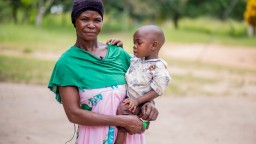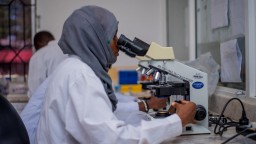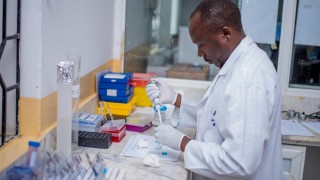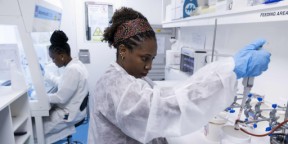Major milestone for malaria fight as new vaccine receives WHO backing
Malaria No More UK welcomes news today that the WHO have published a policy recommendation on the new R21 malaria vaccine, developed by the Jenner Institute at Oxford University.
The new vaccine has completed its phase III trials for safety and efficacy and will join the growing list of new tools bolstering the global effort to end malaria.
With malaria still claiming more than half a million lives every year, mostly threatening young children and pregnant women, a second safe and effective vaccine is a major milestone in an urgent fight to save lives, protect livelihoods and strengthen health systems around the world.

All the mothers are very excited about this vaccine.
One tool alone won’t end malaria. We need a complete suite – vaccines, next-generation mosquito nets, rapid diagnostic tests and life-saving preventative medicines – to fight this disease on all fronts and end malaria in our lifetimes.
This is why it is vital that the UK government continues to support the British-backed innovation pipeline, as well as the mechanisms that ensure all tools get to those who need them most.
We urge the government to continue its long-standing commitment to global institutions including Gavi, The Vaccine Alliance, and The Global Fund to Fight AIDS, Tuberculosis and Malaria, which ensure vaccines and lifesaving tools are rolled out at scale.

Gareth Jenkins, Executive Director of Advocacy and Strategy at Malaria No More UK, said:
"Groundbreaking British-led science has today taken us a step further in the fight against malaria. News of a second malaria vaccine is another example of the tremendous power of UK backed research and development.
By adding a second malaria vaccine to our arsenal we will be able to extend the reach of this vital preventative tool to thousands more children and avert further unacceptable and preventable deaths.
Yet it is vital that both malaria vaccines have the funding, support and pathways required to reach children as quickly and effectively as possible.
The reality is that malaria financing globally is far from where it needs to be and annual deaths from malaria rose during the pandemic and are still above pre-pandemic levels, so we cannot afford to be complacent as new tools are developed."






